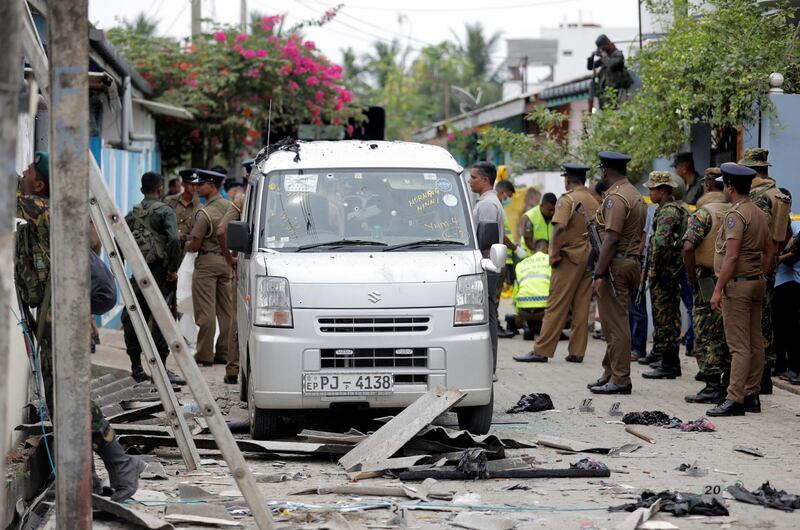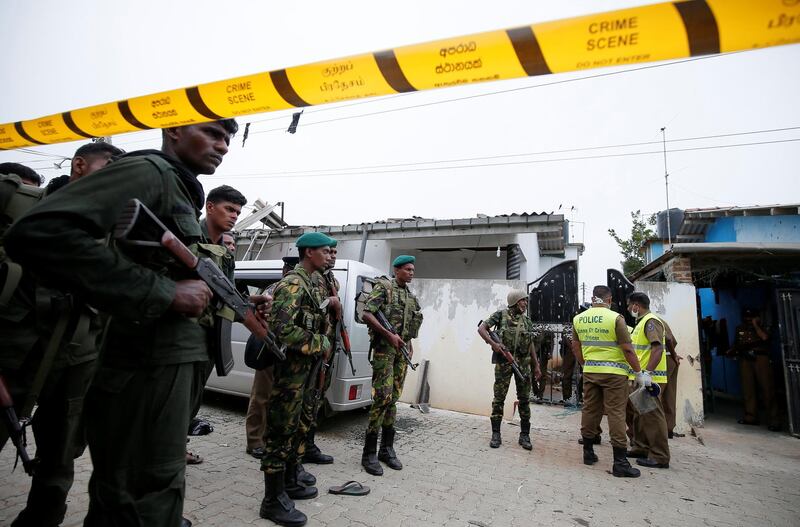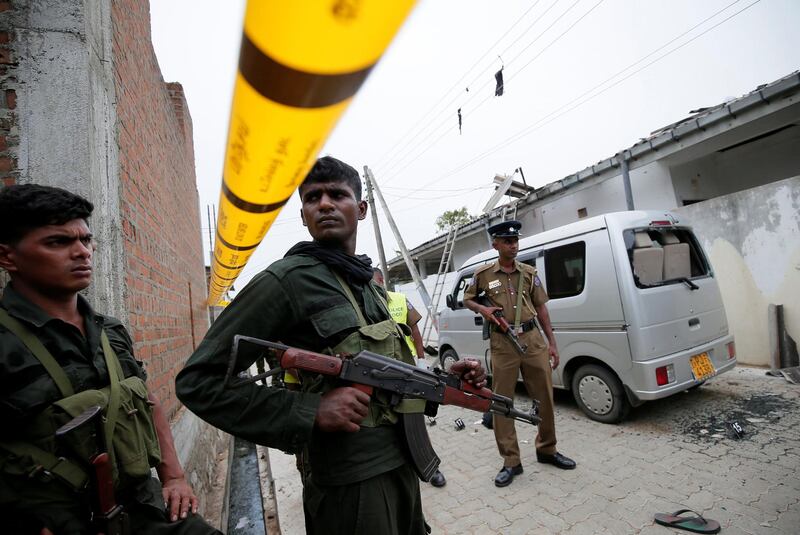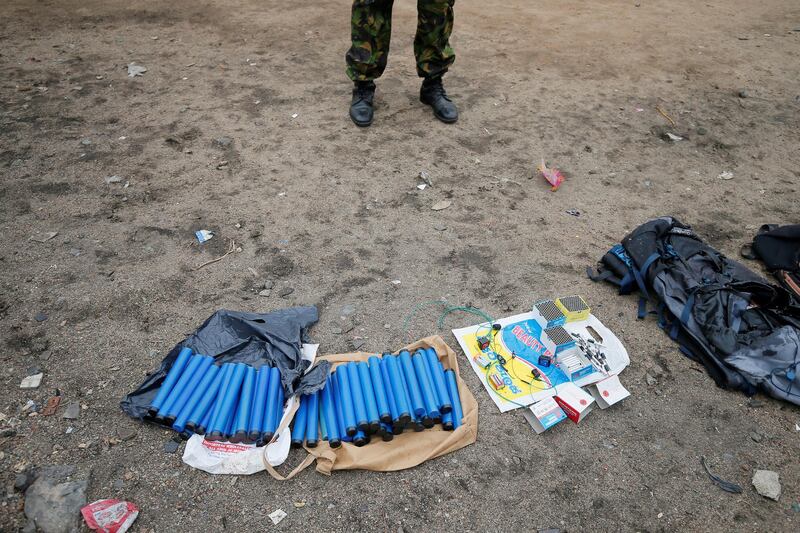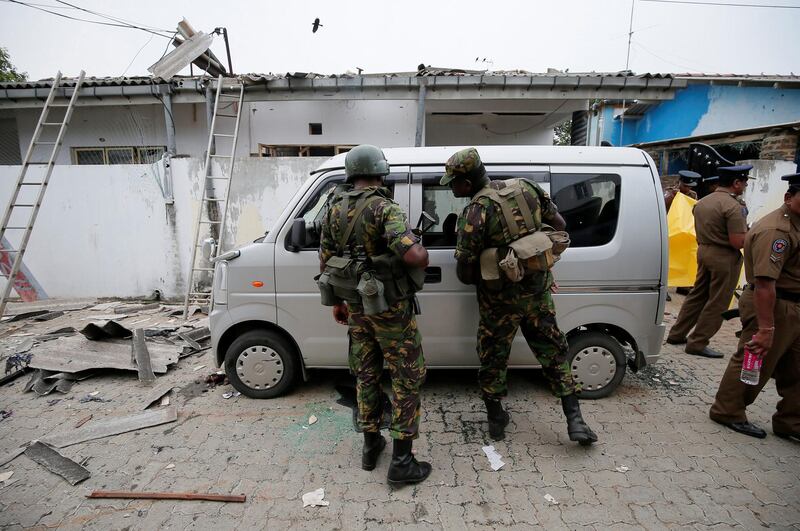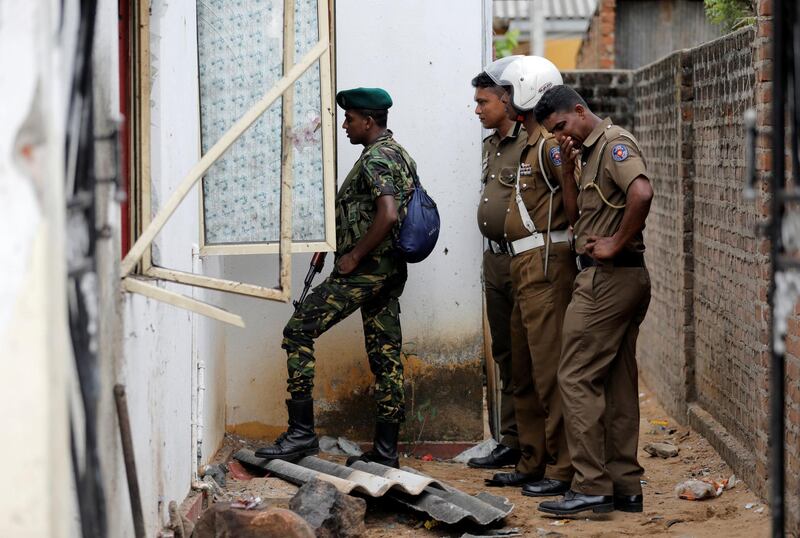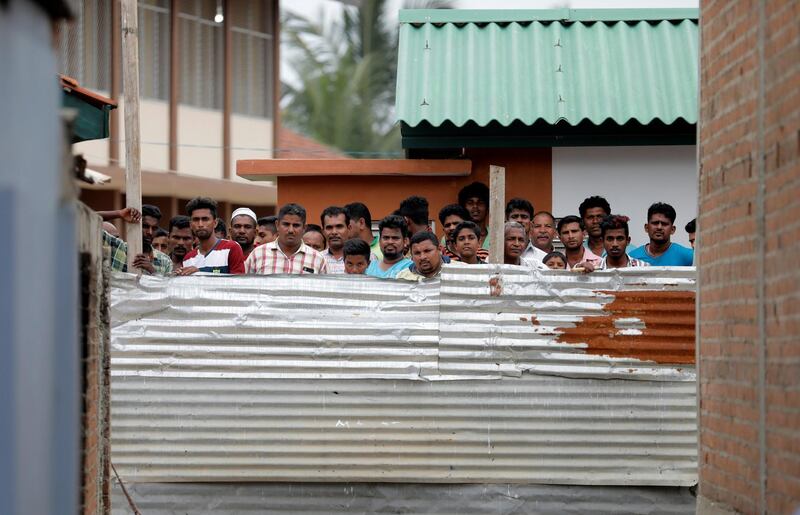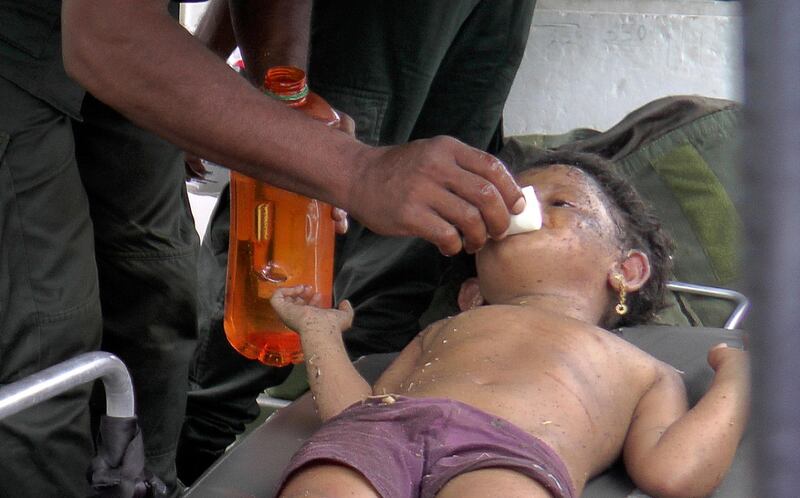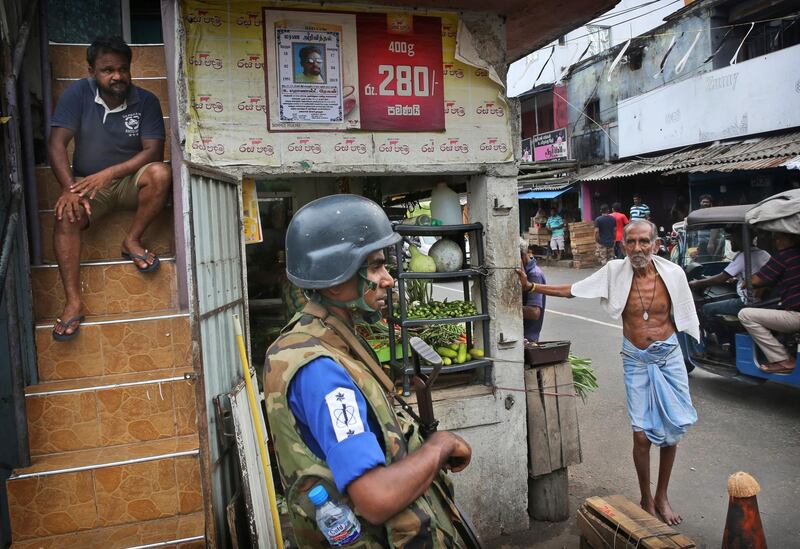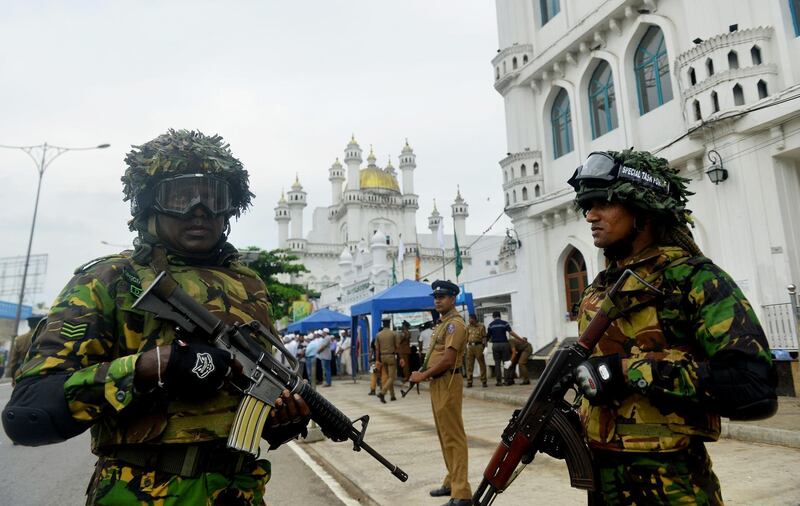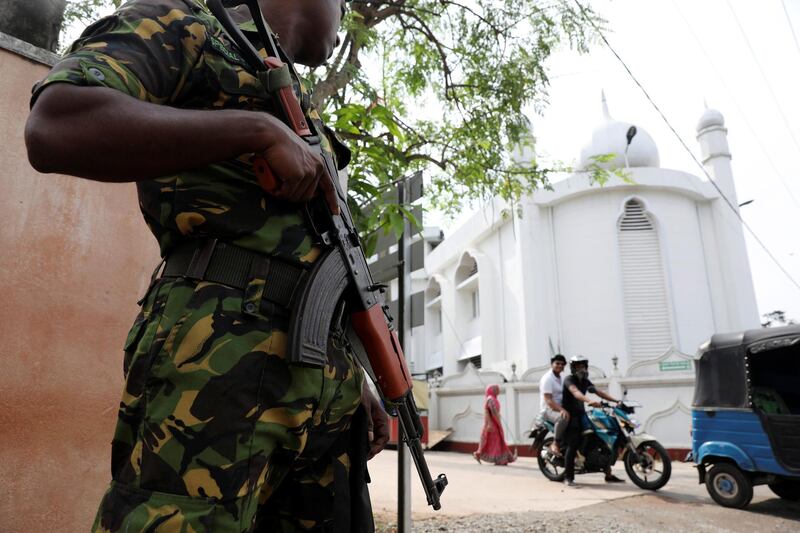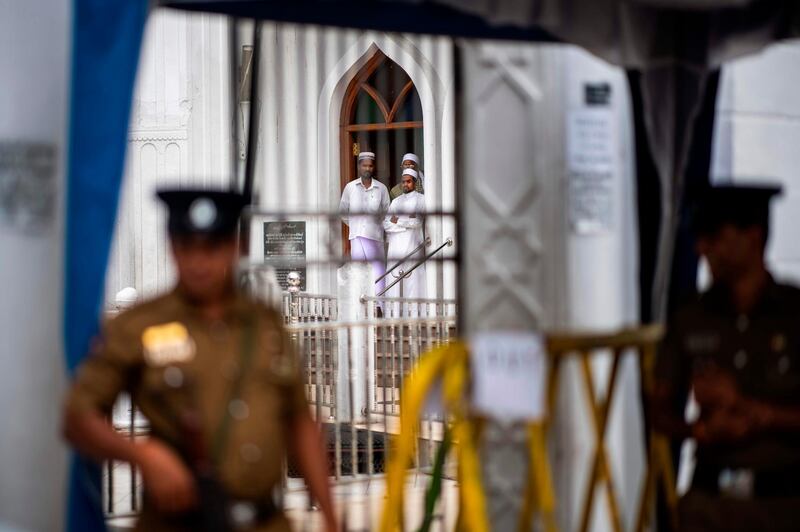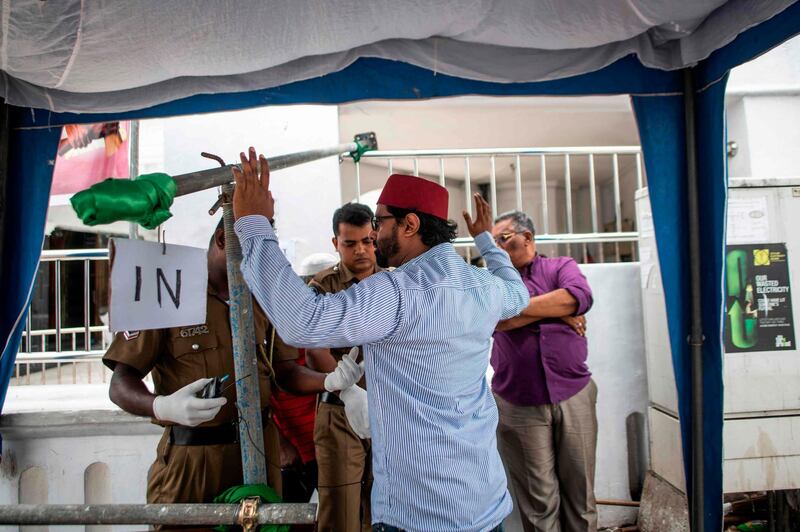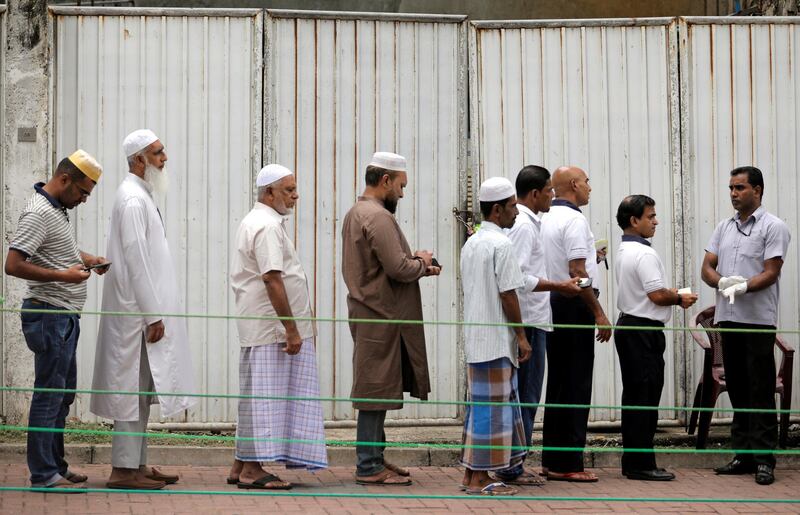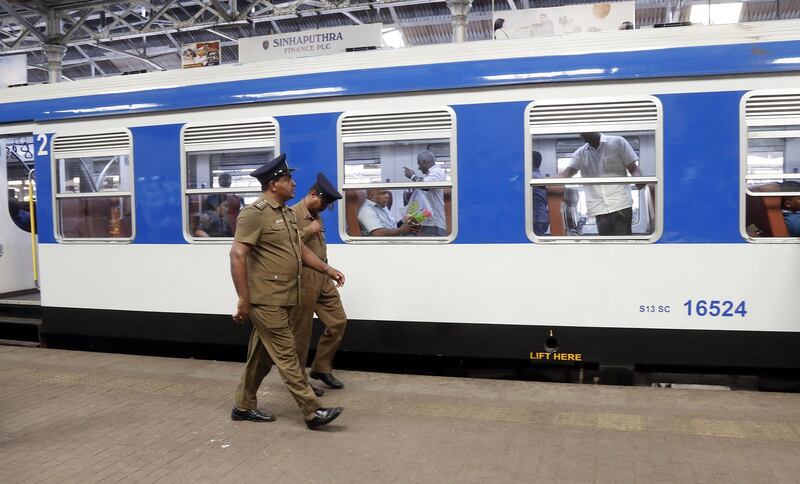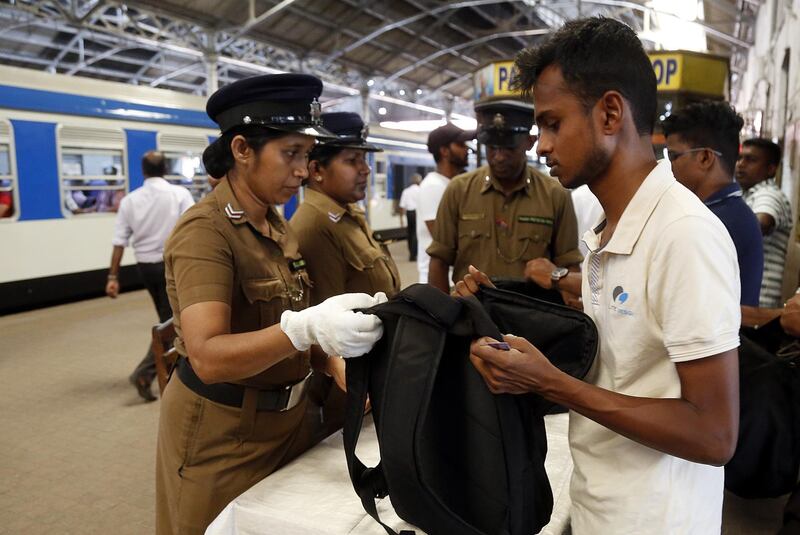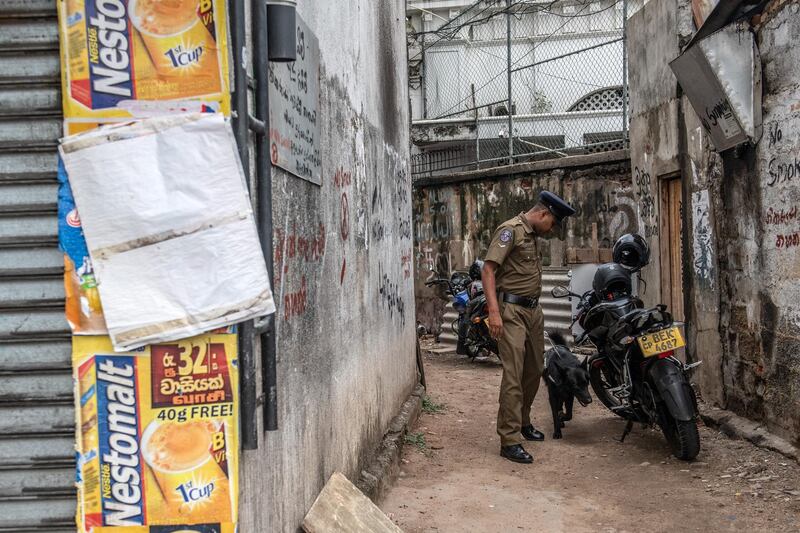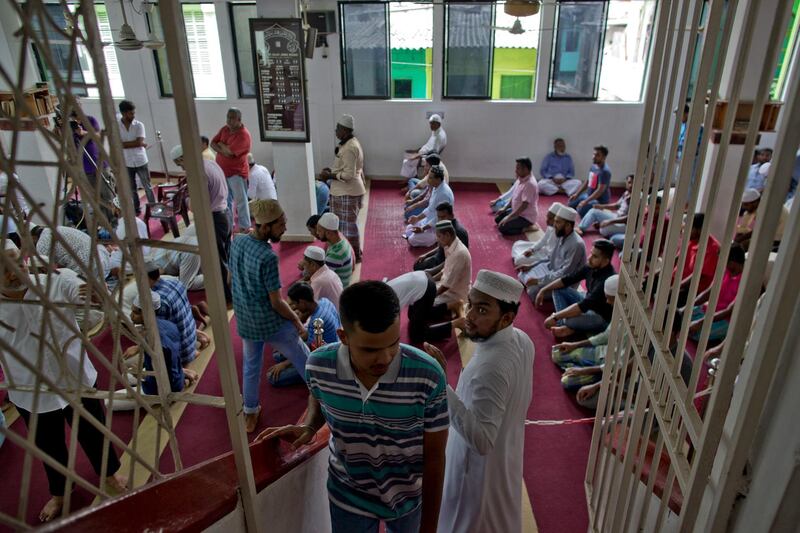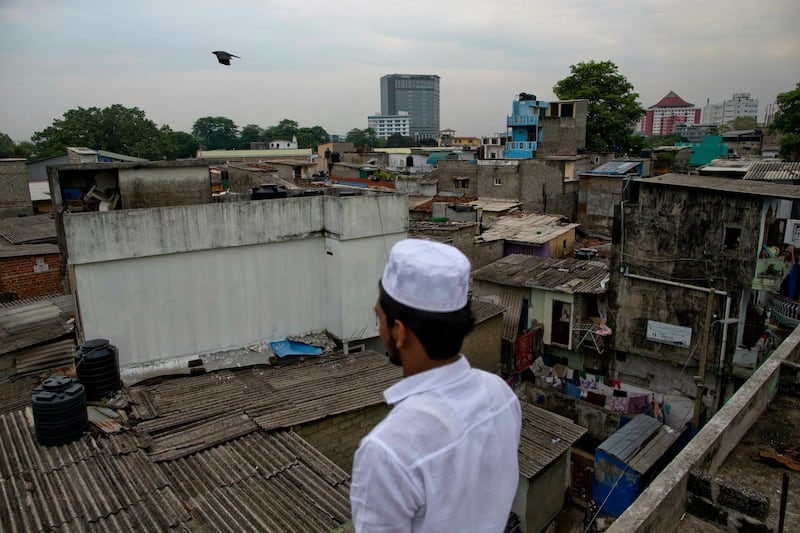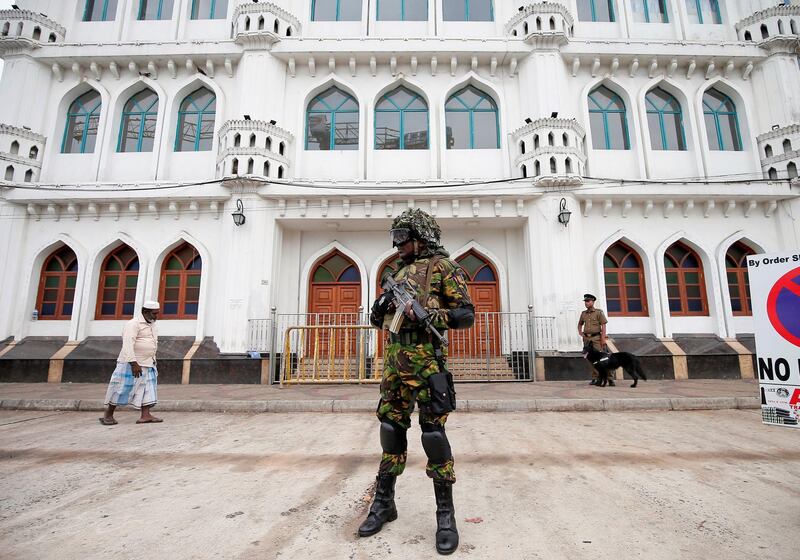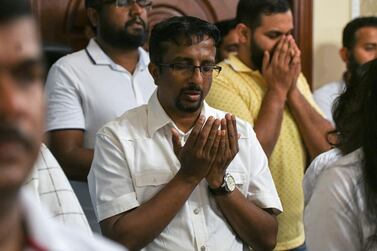The two Sri Lankan Islamist groups believed to have been behind the suicide bombings on churches and hotels on Easter Sunday have been outlawed by the country’s president just hours after a raid in the country’s east left the suspected ringleader’s wife and child wounded.
The National Thawheedh Jamaath (NTJ) and Jamathei Millathu Ibrahim were banned under his emergency powers, President Maithripala Sirisena said on Saturday, nearly a week after the attacks across the country left nearly 300 people dead.
Authorities could not act earlier to ban the two little-known groups because the law required them to show firm evidence against them, officials said.
Police believe the suspected mastermind of the bombings, Mohamed Hashim Mohamed Zahran, led either the NTJ or a splinter group. Less is known about Jamathei Millathu Ibrahim, whose members are also believed to have played a role in the bombings.
ISIS has claimed responsibility for the attacks.
Nearly 10,000 soldiers are deployed across the island to carry out searches and boost security since the bombings in three churches and four hotels, most of which were in the capital Colombo.
Security forces have detained 100 people, including foreigners from Syria and Egypt, police said.
On Friday, a gun battle erupted between soldiers and militants during a raid on a safe house in Sainthamaruthu in Ampara district on the island's east coast. Much of the region has been on lockdown as security forces sweep for suspected accomplices.
A military spokesman said that in the fierce fighting that lasted several hours, at least 16 people were killed – including three wearing suicide bombs as well as at least six children.
Police spokesman Ruwan Gunasekara said some of the dead were likely to be militants who blew themselves up in suicide bombings.
The wounded included the wife and a daughter of Zahran, who survived an explosion, his family said.
"Yes, the wife and daughter were injured in the attack,” said Mohamed Hashim Mathaniya, sister of Zahran. "I was asked to come to identify them but I am not sure I can go," she said from the town of Kattankudy in the east where Zahran was originally based.
Bomb-making materials, 150 gelignite sticks, “suicide kits” and 100,000 ball bearings were found in a search of a separate house in the same area, along with ISIS banners and military uniforms, the military said. Explosives are often packed with the small metal balls to create a cloud of deadly shrapnel and increase the death toll.
The suspected ringleader’s driver was detained in a separate raid, according to a police statement.
Zahran appeared in a video released by ISIS days after the bombing, the only one showing his face while seven others were covered. In the video, the men stand under a black ISIS flag and declare their loyalty to its leader, Abu Bakr Al Baghdadi.
Authorities have said there could be more attacks against religious centres. Last Sunday's bombings shattered the relative calm in the Buddhist-majority country since a 26-year civil war with mostly Hindu ethnic Tamil separatists ended a decade ago.
Mr Sirisena and the government of Prime Minister Ranil Wickremesinghe have faced strong criticism after it emerged that India had repeatedly given warnings of the possibility of attacks.
Both Mr Sirisena and Mr Wickremesinghe have said the intelligence was not shared with them, exposing rifts at the top of the government and raising questions about its ability to deal with the security crisis.
The national police chief has refused to accept Mr Sirisena's request to step down, two sources told Reuters on Saturday, a further embarrassment for the president.
The US State Department said terrorist groups were continuing to plot attacks and warned its citizens not to travel to Sri Lanka, as well as ordering the departure of all school-age family members of US government employees in the country.
India and Britain have also advised their citizens to avoid travelling to Sri Lanka.
The moves are a blow to the country that in recent years has shot up the list of global destinations, being named by travel guide company Lonely Planet as the No 1 destination of 2019. The travel warnings will be a blow for the thousands of people employed in the hospitality sector.
The security forces' response has included raids on mosques and homes of people in the town of Negombo, where 104 died in the bombing of a church.
Police said on Friday they were trying to track down 140 people they believe have links with ISIS.
The president said some of the country's youth had been involved with the group since 2013 and that there were drug trafficking links.
Muslims were urged to pray at home on Friday after the State Intelligence Services warned of possible car bomb attacks, amid fears of retaliatory violence. With bomb scares, lockdowns and security sweeps, many have fled their homes.
The Easter attackers are "not Muslims. This is not Islam. This is an animal", said Akurana Muhandramlage Jamaldeen Mohamed Jayfer, the chairman of the mosque. "We don't have a word [strong enough] to curse them."
There were also reports by some Muslims of harassment because of their religion.
A local television channel showed people on a bus asking a Muslim woman wearing a traditional burqa to either remove it or leave the bus. She later left the bus.
Abdul Azeez Abdul Sattar, 63, an auto-rickshaw driver, said a man in his neighbourhood refused to hire him, telling him: "You are a terrorist; you have a bomb. I won't take your auto".
The archbishop of Colombo, Cardinal Malcolm Ranjith, said he had seen an internal security document warning of further attacks on churches and said there would be no Catholic masses celebrated anywhere on the island this Sunday.
Giovanni Maria Vian, a church historian and emeritus editor of the Vatican newspaper, said he believed it was the first time the church had cancelled Masses across a country for security reasons.
In Galle Face, a normally crowded oceanside park in Colombo near some of the hotels that were bombed, only a few people could be seen on Saturday. Kiosks were closed and traffic was lighter than usual, with security officials blocking streets and checking vehicles at barricades.
Yashwant Kumar Singh, 23, a worker from India, said he wants to go back to his homeland because he fears another attack. "If it only happened on one day, then that wouldn't have been so difficult, but bombs are going off here every day. That is why there is an atmosphere of fear. We are feeling very scared," he said.
Meanwhile, cleaning crews worked at St Anthony's Shrine in Colombo, the capital, where broken glass still littered a blood-stained floor, the remnants of one of the Easter attacks. They collected debris, tossing it into a truck parked outside as a heavy contingent of security forces stood guard.
Sri Lanka's 22 million people include minority Christians, Muslims and Hindus. Until now, Christians had largely managed to avoid the worst of the island's conflict and communal tensions.
Most of the bombing victims were Sri Lankans. The dead also included 40 foreigners, including British, US, Australian, Turkish, Indian, Chinese, Danish, Dutch and Portuguese citizens.
